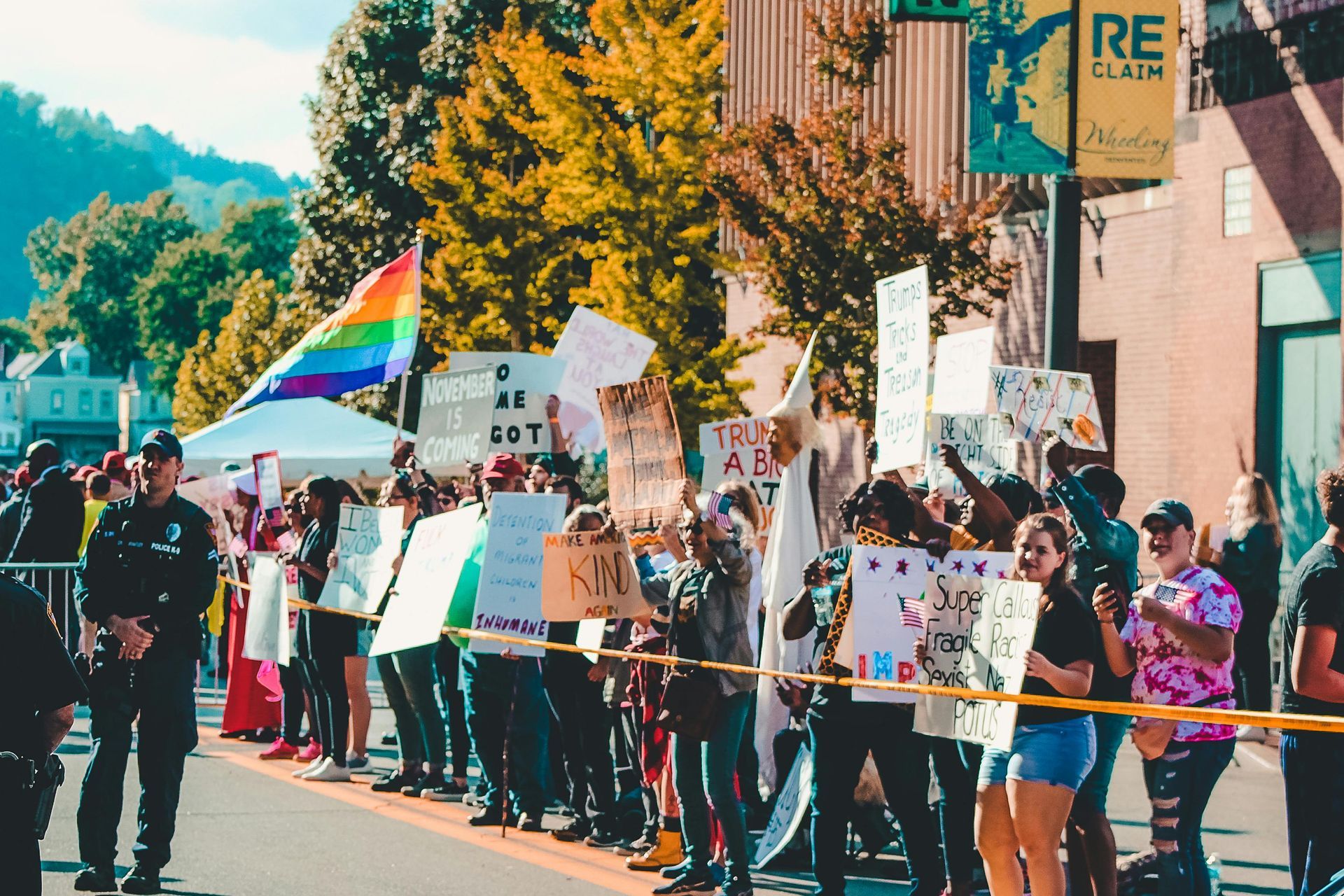The Impact of Political Turbulence on Mental Health: Navigating Uncertainty in Unstable Times

Understanding Political Turbulence
Political turbulence includes events such as:
- Elections and Campaigns: Times of intense public discourse, debates, and media coverage.
- Policy Changes: Implementation of new laws or regulations affecting various aspects of life.
- Civil Unrest: Protests, demonstrations, and other expressions of public discontent.
- International Conflicts: Wars, diplomatic crises, and global political tensions.
These events can lead to widespread uncertainty, fear, and division, affecting mental health in significant ways.
The Psychological Impact of Political Turbulence
Heightened Stress and Anxiety
Political events can be significant stressors. Research has shown that nearly half of Americans report experiencing political stress, leading to:
- Physical Symptoms: Headaches, fatigue, and sleep disturbances.
- Emotional Symptoms: Feelings of helplessness, irritability, and sadness.
- Behavioral Changes: Social withdrawal, changes in appetite, and reduced productivity.
Depression and Feelings of Hopelessness
Exposure to ongoing political instability can lead to depressive symptoms. The constant barrage of negative news and perceived lack of control over political outcomes can create feelings of hopelessness and despair.
Polarization and Social Isolation
Political division can strain personal relationships, leading to social isolation. Fear of conflict may cause individuals to avoid social interactions, further exacerbating feelings of loneliness and disconnection.
Post-Traumatic Stress Disorder (PTSD)
Individuals living in regions affected by violent political unrest are at higher risk of developing PTSD. Symptoms can include flashbacks, severe anxiety, and intrusive thoughts about distressing events.
Factors Influencing Vulnerability
Several factors can increase an individual’s susceptibility to mental health issues during politically turbulent times:
- Proximity to Events: Those living near areas of political unrest may experience greater psychological distress.
- Media Consumption: Excessive exposure to political news, especially through social media, can heighten anxiety.
- Personal Investment: Individuals with strong political beliefs or marginalized identities may feel more threatened by political changes.
- Pre-existing Mental Health Conditions: Those with existing mental health concerns may experience worsened symptoms during politically turbulent times.
Coping Strategies for Political Turbulence
While it’s impossible to control external political events, there are evidence-based strategies individuals can use to manage their mental health:
Limit Media Exposure
- Set Boundaries: Establish specific times to check news updates, avoiding continuous monitoring.
- Choose Reliable Sources: Rely on reputable news outlets to minimize exposure to misinformation.
Practice Self-Care
- Physical Activity: Regular exercise helps reduce stress and improves mood.
- Mindfulness: Techniques like meditation and deep breathing can promote mental calm.
- Rest: Prioritize quality sleep to support overall well-being.
Foster Positive Social Connections
- Open Dialogue: Engage in respectful discussions with others to broaden perspectives.
- Support Networks: Lean on friends, family, or community groups for emotional support.
Seek Professional Support
- Therapy: Mental health professionals can provide coping strategies tailored to your needs.
- Support Groups: Joining groups with shared experiences fosters a sense of community.
The Role of Dearborn Therapist in Supporting Mental Health
At Dearborn Therapist, we recognize the profound impact that political turbulence can have on your mental health. Our team of experienced mental health professionals is committed to providing a safe, compassionate space where you can process your feelings, develop healthy coping mechanisms, and find lasting resilience.
Our services include:
- Individual Therapy: Personalized support to address anxiety, depression, and stress.
- Family and Couples Counseling: Helping you navigate relationship challenges in politically charged times.
- Group Therapy: Creating supportive communities for shared healing and growth.
By focusing on evidence-based practices, our therapists work collaboratively with clients to empower them with the tools needed for a healthier, more balanced life, even in the face of political uncertainty.
Frequently Asked Questions (FAQ)
Q1: How can I stay informed about political events without feeling overwhelmed?
A1: Balance staying informed with your mental health. Set specific times for news updates, choose reliable sources, and avoid consuming negative news before bedtime.
Q2: What are the signs that political stress is affecting my mental health?
A2: Persistent anxiety, sadness, changes in sleep or appetite, social withdrawal, irritability, or difficulty concentrating are signs of political stress. If symptoms persist, consider seeking professional help.
Q3: How can I have political discussions without damaging relationships?
A3: Approach conversations with empathy and respect. Focus on understanding others’ perspectives rather than persuasion. Setting healthy boundaries can also help.
Q4: Are there specific therapies effective for managing political stress?
A4: Yes, therapies such as Cognitive Behavioral Therapy (CBT) can help reframe negative thought patterns. Mindfulness-based therapies are also effective for stress management.
Q5: How can community involvement help me cope with political stress?
A5: Community involvement fosters a sense of agency and purpose, helping you connect with others and make a positive impact.
Q6: How does self-care play a role in managing political stress?
A6: Self-care activities, like regular exercise, quality sleep, and engaging in hobbies, are vital for reducing stress and promoting mental health.
At Dearborn Therapist, we believe that taking care of your mental health is essential—especially during times of political turbulence. Reach out today to start your journey toward resilience and emotional well-being.
